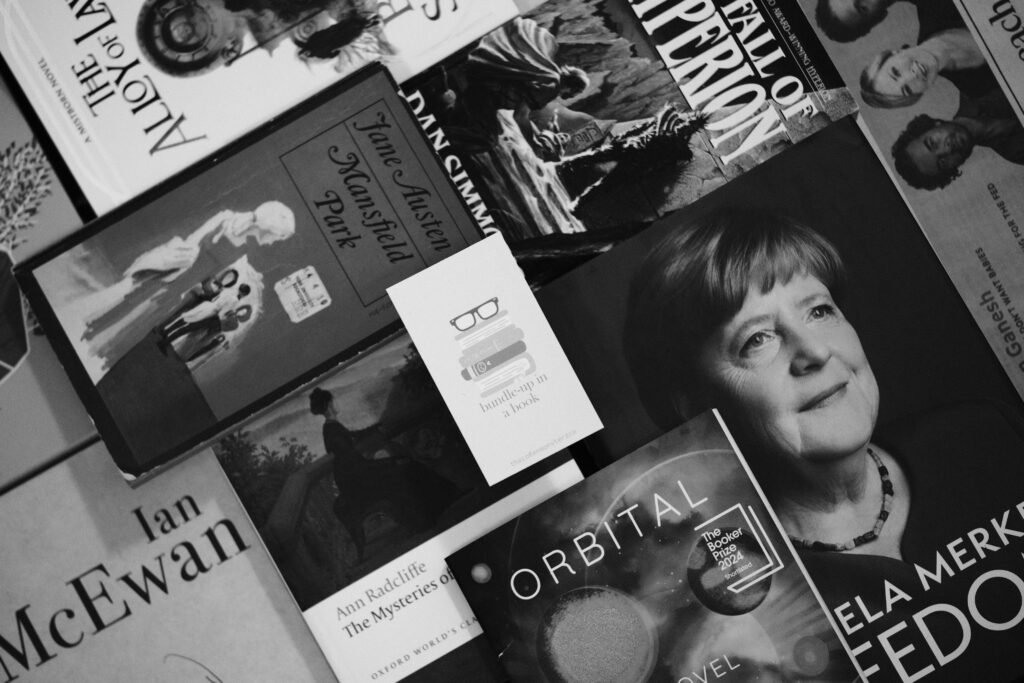2021 words
It was not the first time that I had come across J.R.R. Tolkien’s beloved love story, Beren and Lúthien. The first was during its relatively short section within the Silmarillion, and though it made an impression, the details from Tolkien’s earlier renditions, carefully curated by his son, Christopher, allowed for greater insight into many aspects of one of the most important writers this side of Shakespeare. The act of reading classical fiction and literature is to immerse oneself in what makes them endure, and how their pages reflect on our lives today, many decades or centuries later.
When reading the more fully drawn-out renditions of the tale, at first, my thoughts immediately fell upon a slight disgust, for this was another love story which essentially started out with a rough and tumble man stalking an innocent and kind woman and somehow winning their love. Often in these tales, the nuances of a kind heart are lost entirely by also introducing other traits, such as gullibility and naivety, which are the result of having an inexperienced, childlike mind.
“How many female authors have written a love story which started out this way,” I wondered.
“Why do men think that this sort of behaviour is endearing and acceptable, even today?”
After putting the earliest rendition of the tale aside for an evening, another thought came to me the following day. As I sat in a private room in a medical facility, the news was blaring in the waiting room down the hall. On repeat, the newscast was retelling the same story about the United States cracking down on immigrants through raids. The story focused on the chaos it was creating in the state of California, and in particular, the city of Los Angeles. Not once did the anchor mention that the gross inefficiencies in the protocols implemented resulting in fewer people being deported under the current administration than the one it replaced. Not only did they not bother covering the staggeringly high numbers of people detained, or how the fledging incarceration system, due to the steady decrease in crime rates in the States, was being bolstered by these new sets of policies targeting immigrants, or anyone without American citizenship.1

The newscast and every social media post on the topic focused on one thing: the theatre of cruelty towards those who were vulnerable. The act of taking in immigrants and refugees is innately one made of kindness. Canada has built its beloved reputation on welcoming others and being happy to call them their kin. Often kindness is mistaken for weakness, and indeed, it does make those with gentle and caring hearts more vulnerable. Now, it seems that theose who are welcoming of immigrants are seen as weak, and that punishing immigrants and refugees is not only a mean-spirited punitive measure against those directly involved, but an easy way to punish those on the opposite political spectrum. Just as Beren zeroed in on a kind soul, and Lúthien’s father, Thingol taking advantage of the kind souls which surrounded him with an act of cruelty which cost him a son, it seems that the darker angels of our nature in this world are finding an ample window of opportunity to focus in on the kind and vulnerable. Thingol and many others in his Elven court treated Beren, a human, as a lesser being giving him an impossible task endangering his life, for the value of his life was next to nothing. This signalled King Thingol’s followers, including his son Darion, that such discrimination and inhumanity was acceptable and a mark of strength. Like all great classic literature, this mirrors what we are experiencing today, many years later. The example above of making a big show of heinously detaining immigrants and refugees teaches the public who is open to dehumanizing such groups that such behaviour is acceptable by those in authority.
We are experiencing an all-out assault on kindness from all sides, and it is having a detrimental impact on all aspects of our lives. One of the common traits of any movement or mindset which is offset to the far right or left is that they dehumanize “others.” Due to their steady decade-long rise in the electorate, they have popularized punishing the groups deemed as outsiders. The world does not change overnight, and if you are under the impression that it has, you have simply not been paying attention. Immigrants and those who seek refuge away from life-threatening and horrific conditions have and always will be easy targets.

To illustrate how far we have fallen as a society, recall German Chancellor Angela Merkel’s words when Germany faced the potential of an influx of Syrian refugees on August 31st, 2015. Her words, “Wir schaffen das!” (“We can do it!”), echoed as many hearts warmed while an equal number of hearts chilled in horror at opening the door to the unknown. These worries were cemented by a small handful of acts of violence that followed over the years by migrants, but the hardening of these hearts was nothing new. Germany is paying a dear price for its kindness during the European Migrant Crisis. The Alternative for Germany (AfD) party has recently seen massive gains in elections, all while being tied to extremists. Adults too look to authority figures and those in higher professional, political, or societal positions as barometers for what is acceptable and what is not. Germany is not alone in their struggle against xenophobic ideologies which seek to punish anyone who is different.
Abroad, administrations of the United States, Belarus and other states have made it their goal to focus on being cruel to migrants in distress. Wrongful detentions and deportations without due process, hold on to that thought, are not only on the increase, but they have become highly fashionable amongst various political bases. The kind are easy targets. They put others first, leaving them open to harm and manipulation. Setting aside the Rule of Law in these cases by claiming a state of emergency is a common tactic which undermines the strength of the postwar Western world and its thriving economy.
This form of cruelty and the diminishing of others on the grander scale has festered into personal levels due to the accelerant of the pandemic and the isolation, reverting to online interactions, that it introduced. I wrote about habits that the general public display when it comes to their mobile phones, and that they are immersed in the internet at all times here, and there are a couple of consequences from this that impact those who are just going about their daily lives.
Coupling poor examples to draw upon, growing isolation and becoming accustomed to dehumanizing others have had an impact on how people treat each other, at least here in Toronto. Most people have become habituated to treating strangers as obstacles, as their online behaviour propagates into their actions in the real world.

At formal events, those in attendance make less eye contact with those on the wait staff and entertainers such as dancers and musicians. Having been on both sides of these events, the lack of regard exhibited by those in attendance for the human sharing the space with them has been staggering. Attendees taking videos of staff members and entertainers for their social media without thanking them, while treating them as wallpaper is the new norm. Looks of genuine surprise and gratitude flooded the faces of those working the events when I spoke to them.
The lack of regard for those working in public service has been well documented, especially since the pandemic. Levels of abuse directed at nurses, public servants, and transit workers have been on the rise. The one disturbing trend I have seen in the last year is a civilian verbally abusing someone at a public service office or medical centre, but the abuser has their eyes glued to their phones. Here in Ontario, instead of DMVs such as in the United States or ZFERs in Germany, we have Service Ontario Centres. Earlier in the spring, I went to one in person to update my soon-to-be-expired cards due to my previous photograph almost being unrecognizable. Time and again, I saw the greeter at the front door being abused, and those working the stations received minimal eye contact and only transactional conversations. The lack of eye contact while staring at their phones while yelling was very odd in its frequency. To my surprise, these resilient employees all greeted me with refreshed smiles and said that they had grown accustomed to this behaviour, even as it was getting worse.
As an optimist, I would normally end this article with a promising outlook based on several historical datapoints and some personal examples from my past, but that is sadly not where this is heading. There is one final variable that can ultimately be destructive to the frameworks of our society’s capacity for kindness. When one’s personal and professional life becomes flooded with acts of inept cruelty on top of a general societal trend where a lack of empathy and an increase of cold-hearted callousness are nurtured, one eventually themselves stops being kind.
I have a few close friends who cold-call me throughout the week when they need a reassuring shoulder, and they usually ask me how I am doing. For the second quarter of this year, I was dumbfounded on a weekly basis on how to respond. I reverted to “I’m fine” for I was not, and I was not ready to talk about what I was going through.
From February of this year until mid-June, I had witnessed repeated acts of callousness and disregard from people close to me, or through work. Most of them were recipients of my care, attention, and kindness, and all of my effort was starting to feel like a sunk cost. Why was I going out of my way to help these people? What’s the point of continually dropping everything to go to the aid of others only to see them cause damage to themselves and others, especially when they were cautioned not to? Just to give you a clearer picture of how I operate, whenever I have any free time and enough energy to leave my house, I don’t watch television or partake in a hobby; I reach out to others and first ask them if they require any assistance with anything. If all fronts are clear, then I curl up with a good book or go for a walk with my camera.

As the second quarter of the year advanced, I stopped reaching out to others to see if they needed anything. This troubled me. After weeks of self-monitoring and analyzing others, my personal experiences and the above matters of cruelty having greater reign in our world came to light as the clear factor in my own turning away from kindness. Even worse, I started turning people away who asked for help who were not in an emergency. I was burnt out, and my faculty for kindness had run out of endurance.
The weight of this realization nearly crippled me as my sense of humour was next to go. By this point, I knew something needed to be done. And for that, I turned to reading more fiction and increasing the amount of articles that covered more than the general news. Reading the words of skilled writers as they put me into the shoes of themselves, their subjects or characters came to cure my hardening heart. I devoured works by new authors while keeping familiar ones nearby, and within two weeks, I was almost back to normal. I write almost, for this year, I think that there may have been some permanent damage done to my capacity for kindness. This is something I am equally ashamed of, and surprisingly, indifferent towards. This concerns me. If my capacity to help others and be genuinely interested in the welfare of literally everyone around me has eroded, what does this mean for those who never cared in the first place? Only time will tell, but the optimist in me is in need of a stiffer drink.

Time of writing: 07/28/25
- “Inside America’s Booming Immigration Detention Industry: The enormous US deportation program’s enriching companies as detainees complain of poor treatment,” by Rogers et al., 01/16/25, The Financial Times
